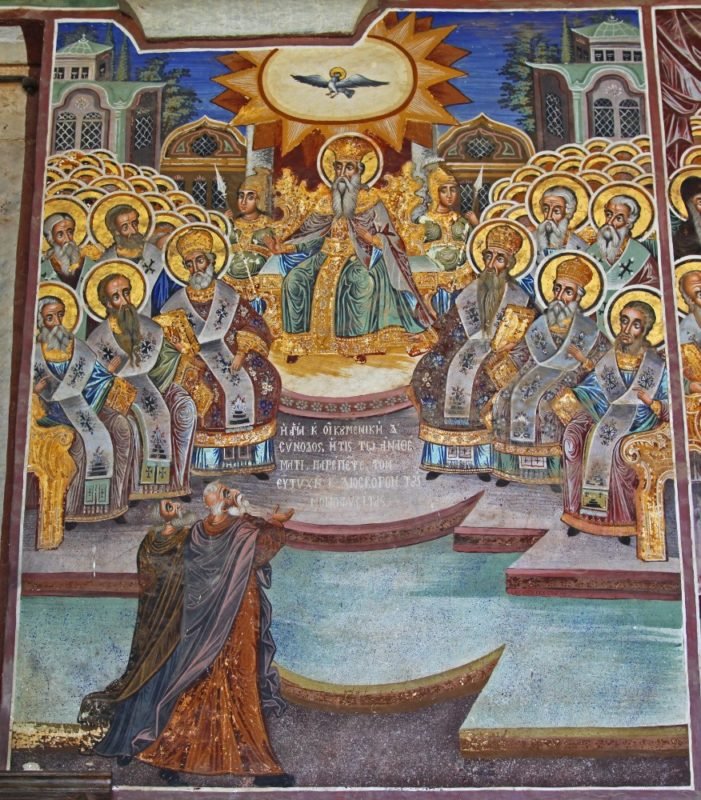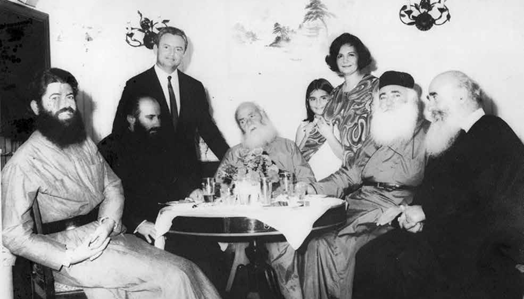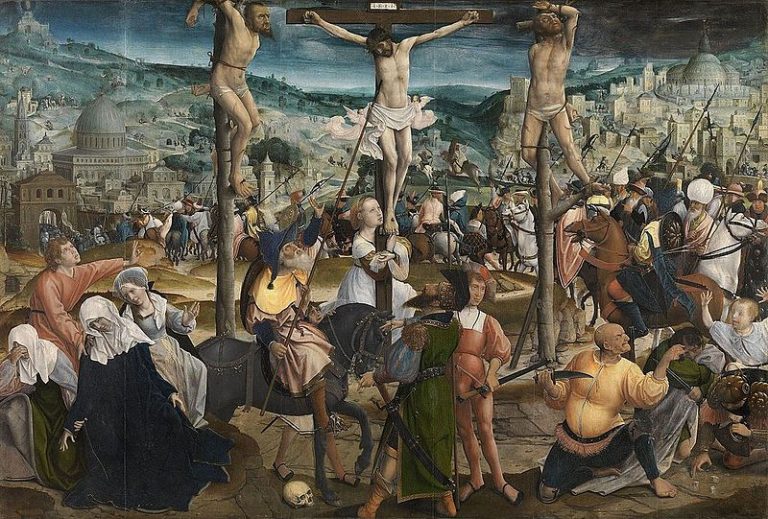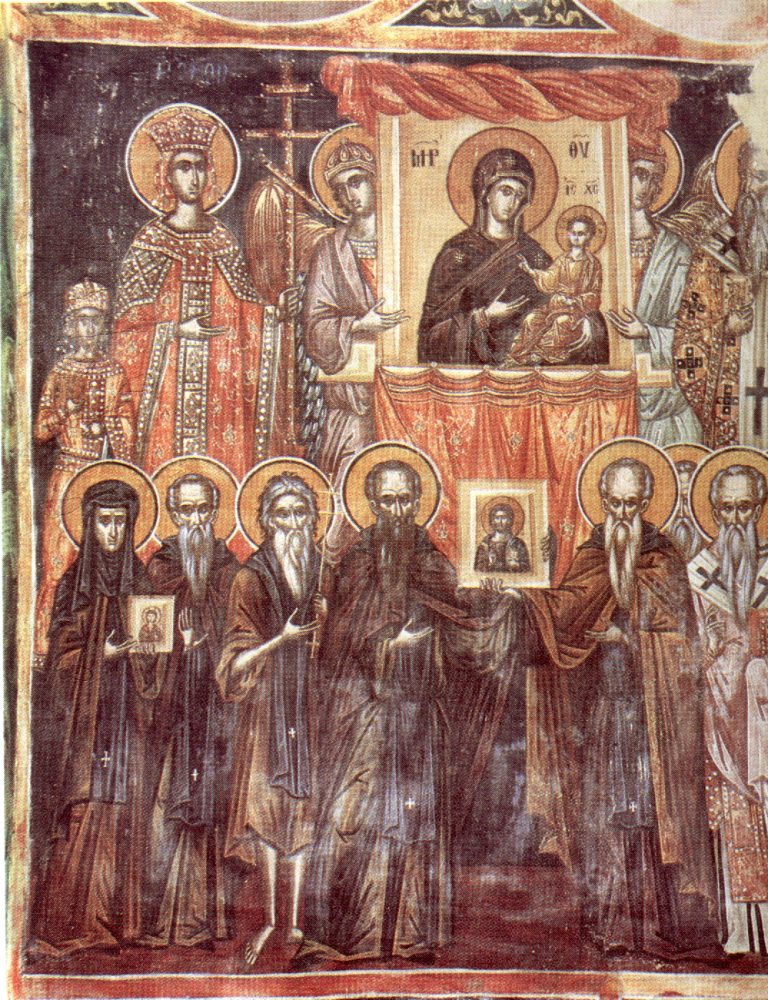Memory of the Fathers of the Fourth Ecumenical Council: Doctrine and Mission
Our Holy Spirit-motivated Church – rightly and for reasons of teaching and security – designates some Sundays of the ecclesiastical year to be dedicated to the Ecumenical Councils. Its aim is to promote and honour the Fathers who participated in them by keeping our faith – thanks be to God – unadulterated from various heresies and perversions of the doctrinal truth expressed and articulated by the one, Holy, Catholic and Apostolic Church. As Fr. John Romanides characteristically points out, “the main purpose of the Ecumenical Councils is to inform the faithful and faithful of the correct faith under the divinely appointed and established spiritual leaders of the Church against any heresy that has arisen within the Church, which would result in the destruction of the faithful’s leadership in the Church. For this reason, anyone who really wants to enter into the spiritual mysteries of the writings of the Holy Fathers against heretics must also read and study their ascetical writings in Christ”.1
The Fourth Ecumenical Council was convened at Chalcedon in 451 AD.2, by the imperial couple Marcianus and Pulcheria. The resolution of this ecclesiastical dispute (heresy of Monophysitism) was of great importance both for the peace of the state and for the course of the church throughout history. That is why the presence of both political leaders 3 and bishops (about 630) was increased. Even the Emperor Marcian and his wife attended the Synod. 4, all the representatives of the Presbyterian Patriarchates and a strong delegation of the Pope of Rome5. Ας πάρουμε τα γεγονότα από την αρχή… Το 448 μ.Χ. υπήρχαν δύο φίλοι· ο Ευσέβιος, επίσκοπος Δορυλαίου, και ο αρχιμανδρίτης Ευτυχής6, ο οποίος ήταν ηγούμενος σε ένα μεγάλο μοναστήρι της Κωνσταντινούπολης και πνευματικός πατέρας πλήθους άλλων κοινοβίων. Σε μια συζήτησή τους διαφώνησαν έντονα όταν ο Ευτυχής ισχυρίστηκε πως μετά την ένωση της ανθρώπινης και της θεϊκής φύσεως του Χριστού, η ανθρώπινη υποχώρησε και επικράτησε η θεία. Επομένως, ο Ιησούς από την σύλληψή του στα σπλάχνα της Παρθένου και μετά, είχε μόνο θεϊκή φύση7 (αυτό πιστεύουν σήμερα οι κόπτες Αρμένιοι, απόγονοι του Ευτυχή). Ο Ευσέβιος προσπάθησε να τον μεταπείσει αλλά ο ηγούμενος ήταν ανένδοτος. Και σαν να μην έφτανε όλο αυτό, κήρυξε την αίρεσή του και σε όλα τα μοναστήρια που ζούσαν υπό την πνευματική του καθοδήγηση μέσω επιστολών
8. Ο Ευσέβιος κατήγγειλε τον Ευτυχή στην ενδημούσα σύνοδο της Κωνσταντινουπόλεως και αυτή με την σειρά της, αφού άκουσε τον αρχιμανδρίτη, διαπίστωσε τις αιρετικές απόψεις του. Ο πρόεδρός της, αρχιεπίσκοπος Φλαβιανός, προσπάθησε να τον μεταπείσει, αλλά δεν τα κατάφερε. Τελικά ο αιρετικός καταδικάστηκε σε καθαίρεση
9. Eutychesis, however, had excellent relations with the Bishop of Alexandria Dioscorus and above all with the Prime Minister of the Empire Chrysaphus, who was his spiritual son.10. The two above mentioned important persons, in order to restore Eutyches, convene a year later (in 44911 “predatory” (illegal) council at Ephesus, where on the one hand he was acquitted12 and on the other hand condemn Eusebius and Archbishop Flavianos to depositionA13. The saint was brutally beaten and after three days he breathed his last breathMansi14 In parallel with the general outcry over the irregularities of the Council of Ephesus.
15, the assassination of Flavian and the change of imperial power, the Fourth Ecumenical Council is convened. They condemned Dioscorus, Euphis and the heresy of Monophysitism and recognized Archbishop Flavian as a martyr, confessor and saint of our Church. Archbishop Flavianus, the witness of the witness, the archbishop of Flavian, well exposed the faith. “16 In view of the title of this Sunday – “Commemoration of the Fathers of the Fourth Ecumenical Council” – we will attempt to present some of the Fathers who played a leading role in it.
- Saints Marcian and Pulcheria, the imperial couple
- Pulcheria was in exile because of the orthodox position she took against the heretic Theodosius II.Basil17 When they took power after the death of Theodosius, they sided with the Orthodox and undertook all the expenses and organisation for the convening of the largest Ecumenical Council in terms of the number of bishops. They designated the decisions of the Synod as the laws of the state.
- Eusebius Bishop of Dorilion
- It is surprising that this hero of doctrinal victories and battles is not included in the chorus of Confessors. As a layman – a lawyer by profession – he interrupted the speakers during their sermons, when they betrayed the truth of the faith. He checked the errors of Patriarch Nestorius of Constantinople and posted protests against the fallacy of his teaching. He informed St. Cyril so that he could take up the battle against Nestorius’ heresy and emerge victoriousTheophanes the18 Later, as a bishop, he revealed the heresy of monophysitism. He also suffered at the predatory Council of Ephesus and remained to the end a militant confessor and guardian of the Orthodox faith…
- Leo I, Pope of Rome and Saint of our Church
- From the very first moment he took the side of Archbishop Flavian, criticized the attitude of the heretics and sent numerous letters in defence of orthodoxy. At the predatory council of Ephesus he sent a letter (Tomos) defending Flavianus, but it was not allowed to be read. He took the lead in the struggle for the convening of the Fourth Ecumenical Council, sent representatives who played a decisive role in its proceedings, and it was thanks to him that orthodoxy survived.
- Saint Flavian
- At first he didn’t want the dispute to take on a major dimension. So, he did everything he could to bring the heretic Eutyches to his senses. In the predatory session he was able to deny his views and get away with it. But he preferred Orthodoxy and its martyrdom…
- Saint Anatolius
- He was elected patriarch by the Lestrian Council and was the spiritual child of the heretic DioscorusEyagius19 However, he chose to serve the law and the Orthodox faith and was a pioneer in convening the Fourth Ecumenical Council.
- Finally, St. Juvenal, Bishop of Jerusalem
- He took part in the robbery session, but had the courage to confess his mistake and continue to serve the church. He was one of the greatest figures of the Fourth Ecumenical Council, not only because he played a great role in its proceedings, but especially because he had the courage to change his mind and turn to the Orthodox, unlike most bishops who remained selfishly in their error.
Doctrine and Mission
On the occasion of the feast and the persons honoured by the Church – the aforementioned and all the participants of the Holy Synod – we will deal with the link between Orthodox Doctrine and Mission. What are dogmas and what is their relationship with mission? Dogmas are the truths of our faith. Fr. John Romanides characteristically states: “The doctrines of the Orthodox faith are the synodical affirmation by the Fathers of all the truth already revealed at Pentecost and existing in Christ and in His mysteries, taught by the Holy Spirit to those who have been taught by Him. The formulation of the doctrines by the Fathers is the expression and safeguarding of the sacramental life of the divine and faithful in Christ and does not differ in any way from the doctrine of the Holy Scriptures”20 Therefore, these are the revealed truths of our faith which derive from the Holy Scriptures, interpreted by the enlightened Fathers of our Church and enshrined in the decisions of the Ecumenical Councils. St. Gregory Palamas expressed himself in a similar way in his confession of the Ecumenical and local councils: “We embrace all the councils gathered together by the grace of God in time and place of holiness for the attestation of piety and of the gospel state“21 We admit, that is, that the councils that followed, were inspired by and based on the principles of the Gospel. And the Holy Rood reverses the words of Saint Gregory, reinforcing their importance: “The pious faithful judge the synods that have been held, and again, the orthodoxy of the doctrines judges the synods”22 According to Pédalion, what assures whether synods are orthodox is their acceptance by the body of Christ, that is, the flock guided by the Holy Spirit and, of course, whether their decisions accurately express the teaching of the Church of Christ. Doctrine is unquestionably crucial to life in Christ. If some claim that good works and holiness of life are sufficient to attain perfection and salvation, regardless of whether or not one accepts the doctrines of the Orthodox faith, let them listen to St. Chrysostom’s counsel: ”
Ουtrees οlife span cleanυ, doctrines and doctrinesφbullshit. Neither are they, on the contrary, of sound doctrine, if they live corruptly.”23. And elsewhere it underlines: “Either doctrine is perverted, even an angel, or it is not persuaded. He teaches rightly, not by experience, but by the words, and by the words and by the judge.”[2]24. Therefore, it is impossible to have missionary activity without delivering to our brothers and sisters the unadulterated Orthodox doctrine; mission is the offering of the true faith, the only one that leads to salvation.
In the apostolic reading of the feast – in chapter 3, verses 8 to 11 – the sublime Paul advises Titus: ‘Let the word be faithful, and let us assure you of this, that those who believe may take care to do good works’. These things are good and profitable to men: but foolish requests, and genealogies, and three, and legal battles are forbidden, for they are useless and vain. Here, by the word “eres” the apostle means quarrels with heretics, “that we may not weary ourselves in vain, when there is no profit, since their end is nothing. Why, when a man is perverse and predisposed, not to change his mind at all, whatever may be done, why should you weary yourself in vain, sowing upon stones, when you ought to spare this good labour to your own, speaking to them of charity and other virtues? How then does he say elsewhere, “Lest God give them repentance,” and here, “the heretical man after the first and second admonition let him go, knowing that he is perverted and sinning, thus condemning himself?” In the first case he speaks of those who have some hope of correction, and of those who have an opposite opinion. But when he is manifest and known to all, for what reason do you fight in vain? Why do you beat the air? What does “condemning oneself” mean? That is, he cannot say, ‘no one advised me’. So when after the advice he himself insists, then he condemns himself. “25 The above attitude towards the leaders of heretics, whether they are teachers of heresy or fanatical followers, applies only when they are harmless and do not attempt to transmit their spiritual disease to our healthy or indifferent brethren. Proceeding, therefore, the Saint points out.26“The Samaritan, when he saw a wounded man who was a complete stranger to him and had no connection with him, stopped and mounted him on his animal and carried him to a hotel and hired a doctor and gave him money and promised him more. We, on the contrary, though we do not see men ambushed by robbers, but ambushed by a group of devils, and besieged by his wrath, not in a desert place but in the middle of the marketplace, we who are not going to spend money nor hire an animal nor accompany him on a long journey, but address a little advice, hesitate and change the road and pass by inhumanly and without mercy. How do we expect with this conduct when we call upon God to have mercy on us?” 27. In any case, much discernment is required.
“Just as to overlook those who have hope for a change is evidence of sloth, so to try to cure those suffering from incurable diseases is evidence of folly and the worst insanity. For in this way we make them more insolent”28 If they do not understand, let us not forget that unnecessary words are a great harm. Let us teach them in our way of life. Let us pray for the tempted brethren and have the assurance that God and His plan for the Salvation of every man has the last word, if of course the man free from God accepts it and does not remain in bondage to his passions and delusions. Let these shining examples, the Fathers of the Fourth Ecumenical Council, the apostles of their time, intercede for us all. May they hope, first of all, that people will not be caught in the net of heresies and then that the Lord will raise up workers whose word, according to the Apostle Paul, will be “always in grace, clothed with salt”, so that they may safely guide His flock, the Church, and evangelize the nations. The memory of the Holy Fathers of the Fourth Ecumenical Council is commemorated on the second Sunday of July each year.
Apolytikon
PL. D´. Blessed art thou, O Christ our God, the light upon the earth, who founded our fathers, and through them led us all to the true faith. Most merciful glory to you.
References
- π. Ioannou Romanidou, Dogmatic and Symbolic Theology of the Orthodox Catholic Church, Pournara, vol. 1, Thessaloniki 2004, p. 198.
- Evagrios Scholasticus, Ecclesiastical History, ed. “J. Bidez and L. Parmentier, The ecclesiastical history of Evagrius with the scholia”, London 1898 (reprint 1979), 38-57. Theophanes the Confessor, Chronography, ed. “C. De Boor, Theophanis chronographia, vol. 1”, Leipzig 1883, (reprint Hildesheim 1963), 103,7-106,14.
- A.C.O. 2.1.1. pp. 55-56.
- A.C.O. 2.1.2. pp. 130-158. Mansi 7. 117-177.
- A.C.O. 2.1.2. p. 4; Konstantinos Metallidis, The question of the presidencies of the Ecumenical Synods, Thessaloniki 2013, p. 72.
- Βασιλείου Κουκουσά, Ο ρόλος του αυτοκράτορα στη συνοδική πράξη της Εκκλησίας κατά τον 5ο αιώνα, εκδ.«Σταμούλη», Θεσσαλονίκη 2004, σ. 59. Παύλου Μενεβισόγλου Μητροπολίτου Σουηδίας και πάσης Σκανδιναβίας, Ιστορική Εισαγωγή εις τους Κανόνας της Ορθοδόξου Εκκλησίας, Στοκχόλμη 1990, σ. 228.
- A.C.O. 2,1,1. σ. 143. Mansi 6, σ. 744. Charles Joseph Hefele, Histoire des conciles, εκδ.«letouzey et ane», τ.2,1, Paris 1908, σ. 537. P.Labrialle-G.Barby-G.Plinval-L.Brehier, Histoire de l’Eglise, εκδ.«Bloud and Gay», τ.4, 1948, σ. 216.
- A.C.O 2,1,1. p. 126.
- A.C.O. 2,1,1. p. 145. Mansi 6, p. 748; Charles Joseph Hefele, Histoire des conciles, ed. letouzey et ane, vol. 2,1, Paris 1908, p. 538; Philip Hughes, A history of the church, ed. Sheed & Ward, vol. 1, London 1947, p. 252. George Florofsky, The Byzantine Fathers of the 5th century, Pournara, Thessaloniki 2007, p. 530. George Stoyoglou, Ecclesiastical History, vol. 1, Thessaloniki 1989, p. 162. Panagiotis Christou, Elliniki Patrologia, vol.4, ed.
- Philip Hughes, A history of the church, Sheed & Ward, vol.1, London 1947, p. 250; Lucia Pierluigi, The Petrine ministry at the Time of the First Four Ecumenical Councils, Boston College, Boston 2010, p. 69.
- ) A.C.O. 2,1,1. p. 68; Peter L’Huillier, The Church of the Ancient Councils, ed.”St Vladimir’s Seminary press”, New York 1996, p. 183; J.W.C. Wand, A History of the early church to A.D. 500, ed. “Methuen and Coltd”, 1936, p. 240; Charles Joseph Hefele, Histoire des conciles, ed, Paris 1908, p. 585; P.Labrialle-G.Barby-G.Plinval-L.Brehier, Histoire de l’Eglise, ed.
- . Mansi 6, p. 869. Evagrius Scholasticus, Ecclesiastical History, ed. J. Bidez and L. Parmentier, The ecclesiastical history of Evagrius with the scholia, London 1898 (reprint 1979), 38-54. Chrysostomos Papadopoulos Archbishop, History of the Church of Alexandria, Alexandria 1935, p. 391. Vasilios Stephanides, Ecclesiastical History, ed. “Papadimitriou”, Athens 1998, p. 223.
- .C.O. 2,1,1. p. 191; Mansi 6, pp. 908-909; Theodoretus Cyr, Correspondance II, ed. “Cerf”, Paris 1964, pp. 20-248. Evagrius Scholasticus, Ecclesiastical History, ed. J. Bidez and L. Parmentier, The ecclesiastical history of Evagrius with the scholia, London 1898 (reprint 1979), 38-54. Konstantinos Metallidis, The question of the presidencies of the Ecumenical Councils, Thessaloniki 2013
- 6, pp. 828-829. St. Nektarios, Study historical on the causes of the schism, published by Panagopoulos, vol. 1, Athens 1911, p. 147.
- A.C.O. 2,1,1. pp. 48-49; Mansi 6, pp. 25-28.
- A.C.O. 2,1,1. p. 115. Charles Joseph Hefele, Histoire des conciles, ed. letouzey et ane, vol. 2,1, Paris 1908, p. 613.
- Koukousa, The role of the emperor in the synodal action of the Church in the 5th century, ed.
- Confessor, Chronography, ed. “C. De Boor, Theophanis chronographia, vol. 1”, Leipzig 1883, (reprint Hildesheim 1963), p. 88. Constantine Metallidis, The question of the presidencies of the Ecumenical Councils, Thessaloniki 2013, p. 47.
- Scholasticus, Ecclesiastical History, ed. “J. Bidez and L. Parmentier, The ecclesiastical history of Evagrius with the scholia”, London 1898 (reprint 1979), 38-54. Frend, The rise of the Monophysite movement, ad. Cambridge University Press, Cambridge 1972, p. 43.
- , P.Ioannou Romanidou, Doctrinal and Symbolic Theology of the Orthodox Catholic Church, Pournara, vol. 1, Thessaloniki 2004, p. 198.
- Venedictus Ieromonachos, Palamikon Tamerion, published by the Synod of Spyridon Ieromonachos, Mount Athos 2007, p. 719.
- .
- Venedictus Ieromonachos, Chrysostomic Fund, published by “Synodia Spyridonos Ieromonachos”, Mount Athos 2002, p. 370.
- Benedictus Ieromonachos, Chrysostomic Fund, published by “Synodia Spyridonos Ieromonachos”, Mount Athos 2002, p. 370.
- Chrysostom, Epistle to Titus, Epistle to Titus, vol. 24, Thessaloniki 1989, p. 121.
- “H.P.E.”, vol. 24, Thessaloniki 1989, p. 123:
- Chrysostom, Sermon XI, ed. “H.P.E.”, vol. 9, Thessaloniki 1978, p. 515
- Chrysostom, Epistle to Titus, ed.






